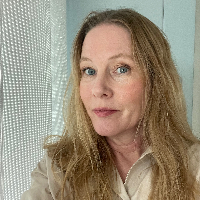We use cookies on this website. Cookies help us deliver the best experience on our website. Read about cookies.
-
- Education
- Education
- Programmes and courses
- Applications and admissions
- Tuition fees
- Scholarships
- Exchange studies at Malmö University
- Study Guidance
-
- After admission
- After admission
- Moving to Malmö
- Pre-orientation
- Arrival guide
-
- About studies at Malmö University
- About studies at Malmö University
- Why choose Malmö University
- Understanding university studies
- Connect with our students
On the page -
- Research
- Research
-
- Doctoral studies
- Doctoral studies
- Doctoral courses
-
- Doctoral schools
- Doctoral schools
- Doctoral school: Education, Learning and Globalisation
- Doctoral school: The National Research School for Professionals in Social Services
- Doctoral school: Learning in Multicultural Societal Contexts
- Doctoral school: ComBine
- Doctoral school: Swedish National Graduate School in Science and Technology Education Research
- Doctoral school: Relevancing Mathematics and Science Education (RelMaS)
- Doctoral school: Sustainable Movement Education
- Doctoral school: Finding ways in a time of great future challenges (FinnFram)
- Doctoral school: Pedagogy and Vocational Skills
- Doctoral school: Culturally Empowering Education through Language and Literature
- Research subjects
-
- Research centres
- Research centres
- Biofilms Research Centre for Biointerfaces
- Citizen Health
- Imagining and Co-Creating Futures
- Institute for Urban Research
- Malmö Institute for Migration Studies
- Literacy and Inclusive Teaching
- Centre for Work Life Studies
- Sustainable Digitalisation Research Centre
- Centre for Sexology and Sexuality Studies
-
- Research publications
- Research publications
- Search publications
- Malmö University Press
- Research events
- Participate in a research study
- Coffee Break Quiz
On the page -
- Collaboration and Innovation
- Collaboration and Innovation
- Innovation
- Collaboration with students
-
- Collaborate with researchers
- Collaborate with researchers
- Labs and facilities
- Culture collaboration
- Support Malmö University
- Alumni & Friends
On the page -
- About us
- About us
-
- Faculties and departments
- Faculties and departments
-
- Faculty of Culture and Society
- Faculty of Culture and Society
- Department of Urban Studies
- Department of Global Political Studies
- School of Arts and Communication
-
- Faculty of Education and Society
- Faculty of Education and Society
- Department of Childhood, Education and Society
- Department of Sports Sciences
- Department of Natural Science, Mathematics and Society
- Department of School Development and Leadership
- Department of Culture, Languages and Media
- Department of Society, Culture and Identity
-
- Faculty of Technology and Society
- Faculty of Technology and Society
- Department of Computer Science and Media Technology
- Department of Materials Science and Applied Mathematics
-
- Faculty of Odontology
- Faculty of Odontology
- Master's programmes in Dental Science
- University Dental Clinic
- Management and decision-making paths
-
- Vision, objectives and strategy 2025
- Vision, objectives and strategy 2025
- Global engagement
- Sustainability
- Widened recruitment and participation
- Quality assurance work at the University
-
- Malmö Academic Choir and Orchestra
- Malmö Academic Choir and Orchestra
- Student work – video pieces
-
- Annual Academic Celebration
- Annual Academic Celebration
- Academic traditions
- Meet our new professors
- The University in a troubled world
On the page
Presentation
Ph.D. in English Studies
Research: literature and culture, intermedia storytelling, adaption, performance, participatory culture/art, interactive cultural practices, live action role playing,
Teaching: English, intermedia storytelling Cultural Studies.
Research project: Embodied participatory forms of storytelling
I am working on a project with Sara Bjärstorp where we study different forms of participatory, interactive, transmedial storytelling. Our focus is primarily on how literature is used in various arenas, some of which are seldom recognised or studied. Our primary focus is on larps (live action role playing) where participants create a story together in physical space. We study the ways in which participants use their body and how they interact with each other and their physical surrounding in order to tell a story together. Since larp is a cultural form that has no audience, only participants, we can only study larps by participating. This means that we also actively problematize the different roles that being a participant and scholar implies. Larps that we have focused on so far are Gertrude, a prequel larp based upon Hamlet, and Fortune & Felicity, a larp based upon all of Jane Austen’s works. These provide a rich material on different aspects on storytelling, intermedia storytelling/adaptation, performance, gaming, embodiment, gender and class.
Earlier research: American Drama and the Production of Voice
My earlier research deals with voice in American drama and what happens to the highly ideologized voice when the textual drama is transferred to the visual film-medium. I this research I study dramas such as The Crucible, Strange Interlude, The Women, Glengarry Glenn Ross, The Dutchman and For Colored Girls who have Considered Suicide.
Dissertation: Language, Subject, Ideology: The Politics of Representation in Virgina Woolf’s To the Lighthouse, Djuna Bernes’s Nightwood and Gertude Stein’s Lurch Church Amiably.
In my dissertation I researched the idea of political literature, and how three modernists—Virginia Woolf, Djuna Barnes and Gertrude Stein—used literary, narrative and aesthetic means to politicize literature. Underlying their avant-garde practices was a belief in linguistic innovation as a road towards political change.
Publications
-
2023 | Chapter in book
Live Action Role Playing and Engagement with Literature
Sara Bjärstorp, Petra Ragnerstam
-
2023 | Article in journal
Live-action role-playing and the affordances of social media
Sara Bjärstorp, Petra Ragnerstam
-
2020 | Other
Glossary: Collaborative Future-Making
Per-Anders Hillgren, Kristina Lindström, Michael Strange, Hope Witmer, Anna Chronaki, Pelle Ehn, Maliheh Ghajargar, Sara Gottschalk, Li Jönsson, Asko Kauppinen, Ann Light, Per Linde, Magnus Nilsson, Petra Ragnerstam, Bo Reimer, Juliana Restrepo, Staffan Schmidt, Alicia Smedberg, Åsa Ståhl, Michelle Westerlaken

